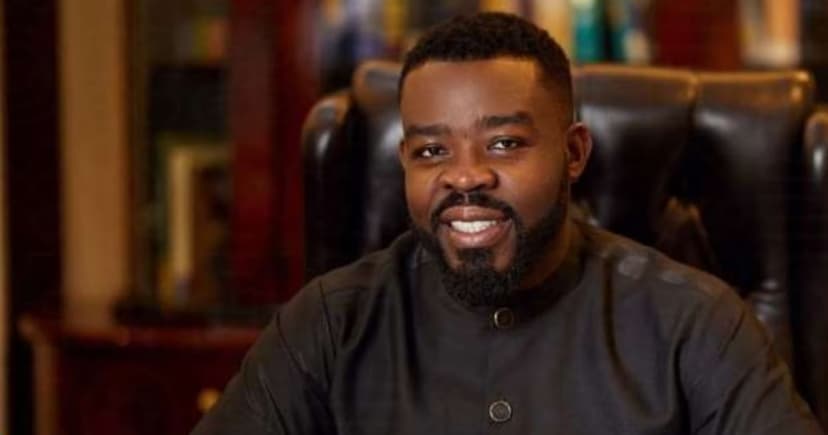Qualities of Creative Thinkers You Must Know

Read about the top 5 qualities of great thinkers that help spice up your thinking skills
According to Entrepreneur Network partner Brian Tracy, creative thinking requires that you continually dig deep into yourself to generate more, newer, better, faster, cheaper and different ideas that you can use to improve the important parts of your life. In order to do this, you’ll need to tap into seven common qualities of creative thinkers, starting with an intense curiosity.
Creative thinkers start by asking “Why?” the way children do all the time. Then they ask “Why not?”
READ Creating a Mindset That Will Help You Succeed
Next, creative thinkers practice zero-based thinking. They continually ask, “If I were not doing what I am doing, knowing what I now know, would I start?”
When you begin to ask these questions and practice one or more of these qualities, you prove to yourself that you are truly a genius, and you simultaneously disprove the negative hypothesis.
Situational awareness — Being constantly alert to what is going on around you. At its most simple, this is the difference between the person at a baseball game about to be hit by a foul ball and the person about to catch that ball. While this example helps to explain the concept, it is important to note that situational awareness is not limited to the physical world. From an internal auditor’s perspective, it is critical to understand the psychological or political situation in which you operate. Who knows what? Who is really making decisions? How are people incentive to act? Who controls the information? The ability to connect these dots is key.
READ The Secret To Success By Matt Morris
Self-awareness of personal bias — Understanding your own personal biases and being able to set them aside, allowing you to consider information more holistically. Bias comes in many forms and, because it’s part of one’s core, is difficult to identify. Self-awareness is critical. One common (and unfortunate) bias that many internal auditors have is an assumption that people not cooperating with an audit must be hiding something. While this can be true, it is more often the fact that they simply feel threatened by a stranger coming in and evaluating their work. It is a natural human response to defend yourself and your group from those outside your group.
Qualities of Creative Thinkers
- Open to diverse thinking and opinions — Recognizing that you are not the only one who can have good ideas and opinions, and being comfortable that your ideas and opinions might not be the best in a given situation. A good leader isn’t concerned with who came up with the idea; he or she is concerned with selecting the idea that is best for a given situation.
- Self-confidence in applying logic — Not only being logical but being confident in your application of logical thinking in a given situation.
- Future focused — Looking beyond the current situation and/or “the way we do things” and envisioning the longer-term impact and interconnectivity of decisions. Understanding “where we are” not as a limiting factor, but as a launching pad for where we need to go.
- Observation and articulation — Able to accurately observe a situation and take it all in. As, or even more, important for an internal auditor is the ability to articulate to others what was observed without distorting the information by adding, changing, or omitting relevant information purposefully or inadvertently.
- Deep questioning — The ability to question, process the response, and follow up with additional questions until one’s objectives are achieved. For example, too often we see a news reporter ask a great question, get a half-answer, and move on. As a viewer, it’s incredibly disappointing. If you find yourself most often satisfied with the first answer you get, you are likely not getting to the root of the information you need. Ask yourself, “What am I trying to achieve?” followed with “Did I get the information I needed to achieve that?” It’s okay for internal auditors to pause and think for a moment during an interview. In fact, moments of silence can be an incredible tool during an interview. Not only will others feel it necessary to fill the silence — often with interesting information — it gives you time to organize your thoughts and consider next steps.
- Follow us on twitter @gluseagh
You Might Also Like

Daniel Dubois Net Worth 2025
What is Daniel Dubois Net Worth ? Daniel Dubois net worth: Daniel Dubois is a British young heavyweight champion with a %92 knockout ratio. At just 23 years if age, he has already announced his presence as one of the future legends in the boxing world. He has held unto the WBO, Commonwealth, and WBC […]

Bukayo Saka makes history with England Vs Wales
Bukayo Saka has written his name in the history books by becoming the all time Arsenal top scorer for the England national team after scoring in the England vs Wales friendly. Saka began his international career with three lions five years ago. He has since netted 13 goals which was enough to surpass former gunners […]

Richard Nii Armah Quaye Net Worth 2025
As of 2025, Richard Nii Armah Quaye’s net worth is estimated to be between $50 million and $100 million USD, making him one of the most influential young entrepreneurs and investors in Ghana. His wealth stems mainly from equity investments through his companies Quick Angels Limited, Bills Micro Credit, and currently, RNAQ Holdings. Through these […]

How to Build Wealth in Your 30s: 9 Habits of Financially Successful People
Your 30s are a critical decade for building lasting wealth. It’s a period when you likely have more income than in your 20s, a clearer sense of direction, and greater financial responsibilities. But whether you’re just getting started or catching up, the good news is that wealth-building is possible at any stage—if you adopt the […]









